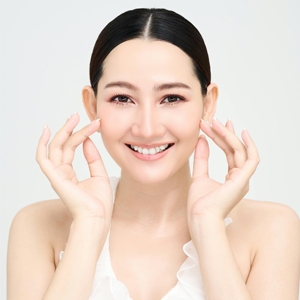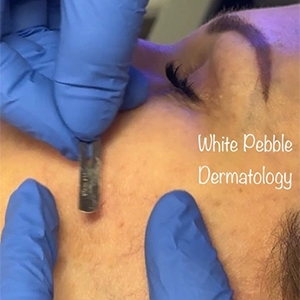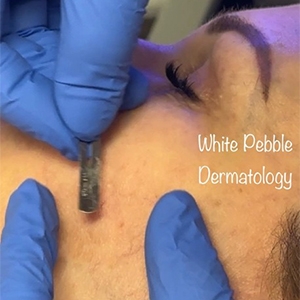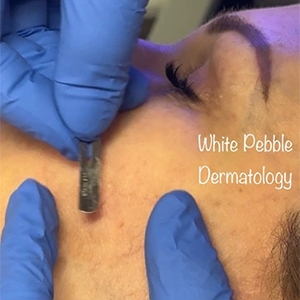What Are Those Bumps on My Child's Skin and Are They Contagious?-Part 1

Welcome to White Pebble Dermatology, your trusted source for pediatric dermatology in Columbia and Highland, MD. As parents, we understand that the health and well-being of your child are of utmost importance. One aspect of your child's health that often requires attention is their skin. Children can experience various skin conditions, some of which manifest as small bumps. In this series of blogs, we'll explore 10 common skin conditions that can cause bumps on
children's skin, shedding light on their causes, symptoms, and treatment options.
Part 1: Demystifying Childhood Acne
Acne, often considered a rite of passage for teenagers, can also affect younger children. It's essential for parents to recognize the signs and understand how to manage acne in children effectively.
What Is Childhood Acne?
Childhood acne, sometimes referred to as pediatric acne, occurs when hair follicles and pores become clogged with oil, dead skin cells, and bacteria. This leads to the formation of pimples, blackheads, and whiteheads on the skin. Acne can appear on various parts of the body but is most common on the face, chest, and back.
Causes of Childhood Acne:
- Hormonal changes: Just like in teenagers, fluctuations in hormone levels can trigger acne in children.
- Genetics: A family history of acne can increase a child's likelihood of developing the condition.
- Diet: While diet alone is not a direct cause of acne, certain foods may exacerbate symptoms in some children.
- Skincare products: The use of comedogenic (pore-clogging) skincare products can contribute to acne.
Symptoms:
Childhood acne typically presents as:
- Small red or white bumps
- Blackheads and whiteheads
- Pimples or pustules
- Inflamed, red areas on the skin
Treatment Options:
Treating childhood acne requires a gentle and tailored approach. Here are some tips and options:
- Mild Cleansers: Use a mild, fragrance-free cleanser to wash your child's face gently twice daily.
- Topical Products: Depending on the severity, your dermatologist may recommend over-the-counter or prescription topical treatments containing ingredients like benzoyl peroxide, salicylic acid, or retinoids.
- Avoid Squeezing: Teach your child not to pick or squeeze pimples, as this can worsen the condition and lead to scarring.
- Diet and Lifestyle: Encourage a balanced diet rich in fruits, vegetables, and whole grains. Avoid excessive dairy and sugary foods.
- Regular Dermatology Visits: Schedule regular check-ups with a pediatric dermatologist, like the dermatology specialists at White Pebble Dermatology, to monitor your child's skin condition and adjust treatment as needed.
Childhood Acne: Not Contagious, But Treatable
One crucial point to remember about childhood acne is that it is not contagious. You won't catch it from another person, and your child won't spread it to others. Instead, acne is primarily influenced by hormonal changes and genetics. This is reassuring for parents worried about their child's well-being and potential interactions with friends or classmates.
Conclusion: Childhood acne can be a source of discomfort and self-consciousness for your child. However, with proper care and guidance from a qualified dermatologist, it can be managed effectively. At White Pebble Dermatology in Columbia and Highland, MD, our experienced team is dedicated to providing comprehensive pediatric dermatology services. Stay tuned for our upcoming blogs in this series, where we'll explore more common skin conditions that affect children and how to address them. If your child is experiencing skin concerns, don't hesitate to book an appointment with us today for personalized care and peace of mind. Book Online at
Book Online or Call
Stay connected with us for Part 2 of our series on common childhood skin conditions that cause bumps on their skin!









